
That time I got invited to a locals-only bull racing festival in central Sumatra
Take a second and think about this: What’s your favourite memory from travelling?
Many people tell me a story about something totally unplanned and unexpected. Surprises, twists of fate, well-made plans that went hopelessly awry. In short, what lies at the heart of most amazing travel experiences is serendipity.
What exactly is serendipity? It was coined in 1754 in reference to a much older fairy tale, The Three Princes of Serendip, in which the heroes “were always making discoveries, by accidents and sagacity, of things they were not in quest of”. (Aside: Serendip was the ancient Persian name for Sri Lanka, which Arab traders considered an isle of enchantment)
How do we create serendipity? I’ll answer this below – but first we must learn why and how not to plan your trip. I often call this unplanning (eg in my post “Unplanning: 5 Lessons from the Death Road“) but perhaps it’s better to call it anti-planning. It’s almost as simple as it sounds.
Now you may be wondering at this point: “What’s so bad about planning? Did a calendar bully you as a kid?”. Or if you know me personally, thinking “Of all people! – aren’t you a super-organised, plan-loving, engineering-type?”
Well yes, guilty as charged. But I don’t travel the way I work. The problem with planning your travels is that it:
- adds fragility to your trip;
- heightens your expectations; and
- builds fences that keep out serendipity.
In my view, these are all bad things, because:
- fragility means more ways a trip can go wrong, or cost more money;
- higher expectations means a higher chance of disappointment; and
- less serendipity means less awesome stories to share, and memories to cherish!
This advice doesn’t work everywhere. If you’re travelling in most rich countries, during high-season, or to overly touristic traps (all places I usually avoid) then planning is required. My advice here isn’t as applicable in these situations, but if these are your typical holidays, don’t leave me just yet! You’ll still find some valuable advice from the rest of this post.
So back to my original question: How do we create serendipity? Embracing it is one thing, but creating it? Sounds a bit nuts: we all know “expect the unexpected”, but “create the unexpected”? C’mon.
I distill the process down to just two simple practices, applied both before and during travel. They are:
1) Prepare, but don’t plan
Before a trip, I read about my destination country: Which regions are interesting? Which urban neighbourhoods appeal? How to safely and affordably travel inside cities? Between them? What are the common cons to avoid? What useful phrases should I know?
Preparation like this allows me to travel with fluidity, re-making plans in realtime on a daily or even hourly basis as situations present themselves.
An example (from Kyrgyzstan): I wanted to access a remote valley I heard was gorgeous. During a share-taxi ride to the region, I met some German girls who had booked a driver the next day to head into that valley. On very short notice I had to make a choice about joining them.
I already knew that it was chockers with stunning scenery and interesting nomadic people (ie worth seeing!); it would take hours getting there myself via public transit; the difficulties of hitch-hiking in bad weather (and knew the forecast was terrible); and that hiring a driver myself would too expensive. So I could quickly give them the answer they needed, and knew it was the best possible outcome. The result was a brilliant day out, and quite affordable too!

That time I drank vodka in a city park with Kyrgyz soldiers
2) Education, not expectation
Education can mean lots of things. What I mean here is that serendipity can flow from a basic knowledge of a country’s history, geography, culture, and language. Especially if it’s fresh in our minds while travelling.
My approach is to find a great book about my destination (usually written by a journalist), and aim to read at least 1/4 of it before the trip commences. It may not be apparent from reading this website, but many of my interactions worth writing about happened because I learnt enough about a place to strike up good conversations with locals, when a chance presented itself.
An example (from Haida Gwaii): I’d read a book about the archipelago’s fascinating history, and was reading another when I started my slooooow trip from Vancouver to Sandspit. (It took me two full days to go just 900km; involving a flight, a hitchhike, a night in a public park, a night outside a hostel, and 22 hours of ferry rides).
Over the next three weeks I’d meet the main subject of my book (a living legend of the Haida); participate in a totem pole raising ceremony (the first in over 100 years) alongside Justin Trudeau; meet a renowned Canadian writer and adventurer who gave us crucial sea-kayaking advice; meet a logger-turned-mayor who told me some wild stories when I stayed in his son’s hostel; and hike alone for two days to reach the birthplace of humankind (according to Haida mythology). Almost entirely because of how much I’d studied Haida Gwaii’s tumultuous history and awe-inspiring culture, I was able to have the most spiritually and emotionally rewarding trip of my life.

That time I helped the Haida raise a totem pole at a once-in-a-century event
Anti-planning is hard. Especially if you’re like me and suffer from decision inertia. That is, we like to make plans and fall a little bit in love with them, becoming resistant to changes.
We all like control – and planning gives us the illusion of control. Once upon a time, I planned every single day of my trips, weeks in advance! But now I’ve learned through trial and error that the peak travel experience comes from being prepared to flow with twists of fate and turns of events. To create the conditions for serendipity to happen.
Try it out. I can’t wait to hear about your future favourite travel memories!


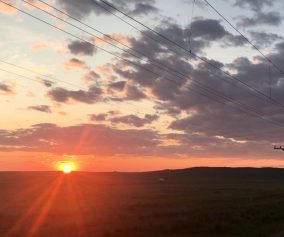
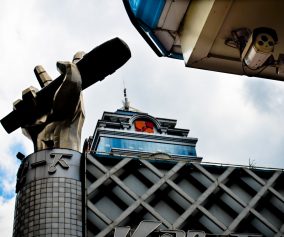

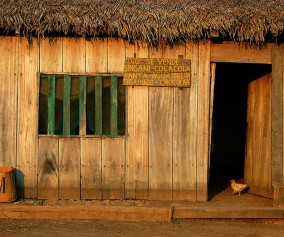


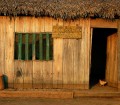
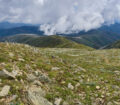





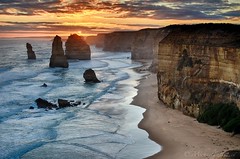


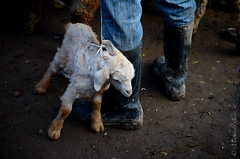


Happy New Year from John & Gina Perth WA
Thanks John, happy new year to both of you too!
Anti-planning
I need more of that.
Thanks for the great articles.
Haida Gwaii – a no brainer for me to go to this beautiful place.
Once the world settles down.
I retired in Sept. Much needed reflection time now.
Take care
Debbie! So nice to hear from you, and what fantastic news: retirement!
I need more of that.
HG is incredible, and barely anyone goes there. I’d feel bad about spreading the secret, except barely anyone reads this blog, haha.